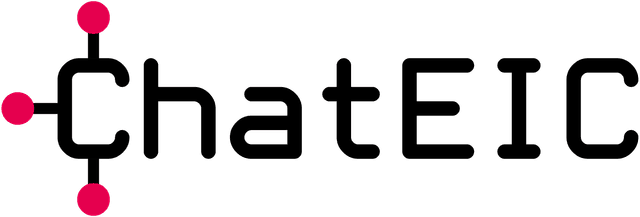
How a Consultant can Produce an EIC Accelerator Pitch Video Remotely (SME Instrument) - Part 1
In 2021, the new EIC Accelerator blended financing program (formerly SME Instrument Phase 2 - grant and equity financing) will include a more sophisticated 3-step evaluation process which includes a pitch video (read: Proposed 2021 EIC Accelerator Process). This will likely place an additional burden on Small- and Medium-Sized Enterprises (SME) and professional writers or consultancies since video production is rarely part of their established skill set (read: Pitch Video).
While the pitch video is an interesting addition to the evaluation process, it is also a new challenge for early-stage startups who often lack the funds for video production or DeepTech companies who are less focused on marketing compared to a digital innovator. Additionally, producing a video can take a lot of time and, as opposed to written content or a pitch deck for the interviews, it must be created in person which places a significant burden on both startups and consultancies.
Implications of the Pitch Video
Just by introducing the pitch video, the European Innovation Council (EIC) has directly increased the reliance of startups on consultancies which, in many cases, have to perform an in-person video production (read: Relying on Consultants). Unfortunately, adding another layer of expertise to the evaluation process only widens the gap between an excellent project and a funded project since consultancy support becomes increasingly indispensable for applicants.
The greatest challenge for new applicants will come in the form of planning the video creation since, while editing a proposal over multiple re-submissions is common, re-editing a video is resource-intensive if it includes additional video production. As a result, the video should be perfect right from the start which means that the narrative of the project and proposal have to be perfected in the beginning so that the correct footage can be collected in a single day and does not need to be re-recorded continuously. More than anything, planning the video production will become a major burden for applicants.
Even if a company is working with an expert video production team, understanding what a resulting pitch video must contain and synchronizing its message with the written application and pitch deck will be a challenge. Often, companies are in a position of having limited funds, limited grant writing experience and have a lack of video footage or production skills. In such a situation, creating a framework to simplify the process of a remote and lean video production should be a must for the EIC and European Commission (EC).
1. Remote Video Production Workflow
Since the official proposal template and documentation are likely unable to provide suitable guidance for applicants, this article will present a proposed workflow for the creation of a pitch video in a remote fashion. Preparing a video remotely will remain the most efficient way for both consultancies and applicants but there are a variety of barriers to this workflow. The following is a shortlist of concerns from clients:
- There is no video footage available
- The company has no camera or related equipment
- The team lacks video production skills or suitable contractors
- The team is unable to script a video
- All employees are working remotely and are not in the same city or country
- The team is unfamiliar with editing software such as Adobe Premiere Pro
These points can be a challenge but are still surmountable through meticulous planning and guidance from a consultancy, writer or freelancer.
1.1 Planning the Process
The normal work-flow when collaborating with a consultancy or writer is to start with a prolonged Kick-Off Meeting (KOM) to discuss the project with the founders of the company and the writing-team. This precedes every other task and has the purpose of bringing everyone on the same page while defining the project and its scope.
Adjusting this process to include video scripting can simply be done by taking the time to define the core messages that need to be communicated for a particular project (read: How to Script a Pitch Video). These should be customized to every startup since the ingenious aspects of a technology or business model will likely vary greatly from company to company.
This article continues in Part 2.
These tips are not only useful for European startups, professional writers, consultants and Small and Medium-Sized Enterprises (SME) but are generally recommended when writing a business plan or investor documents.
Deadlines: Post-Horizon 2020, the EIC Accelerator accepts Step 1 submissions now while the deadlines for the full applications (Step 2) under Horizon Europe are listed below. The Step 1 applications must be submitted weeks in advance of Step 2. The next EIC Accelerator cut-off for Step 2 (full proposal) can be found here. After Brexit, UK companies can still apply to the EIC Accelerator under Horizon Europe albeit with non-dilutive grant applications only - thereby excluding equity-financing. Switzerland has resumed its participation in Horizon Europe and is now eligible for the EIC Accelerator.
EIC Accelerator Step 1 Deadline 2025
Contact: You can reach out to us via this contact form to work with a professional consultant.
AI Grant Writer: ChatEIC is a fully automated EIC Accelerator grant proposal writer: Get it here.
EIC Accelerator: EIC Accelerator delivers flexible funding options including blended finance (€2.5M grant + €0.5M-€10M equity), grant-only (up to €2.5M), or equity-only arrangements for scale-up and market deployment of breakthrough innovations. The initiative targets SMEs, start-ups, and small mid-caps with up to 499 employees. Technology areas include Biotech, Engineering, Artificial Intelligence, Energy, Quantum, Aerospace, Advanced Materials, and Semiconductors. Get Started
EIC Pathfinder: EIC Pathfinder delivers up to €3 million for Open calls and up to €4 million for Challenge-based calls to support early-stage research and development with proof-of-principle validation. The initiative requires research consortia with a minimum of 3 partners from 3 different countries, including universities, research organizations, and SMEs. Primary technology focus areas include Health/Medical, Quantum Technologies, AI, Environmental/Energy, and Advanced Materials. Get Started
EIC Transition: EIC Transition delivers up to €2.5 million in funding to overcome the 'valley of death' gap between laboratory research and market deployment, emphasizing technology maturation and validation. The initiative supports single legal entities or small consortia of 2-5 partners including SMEs, start-ups, spin-offs, and research organizations. Key technology domains include Health/Medical Technologies, Green/Environmental Innovation, Digital/Microelectronics, Quantum Technologies, and AI/Robotics. Get Started
EIC STEP Scale-Up: EIC STEP Scale-Up delivers significant equity investments of €10-30 million for established deep-tech companies prepared for hyper-growth and large-scale expansion. The initiative targets SMEs or small mid-caps with up to 499 employees who have obtained pre-commitment from qualified investors. Primary focus areas include Digital & Deep Tech (Semiconductors, AI, Quantum), Clean Technologies for Net-Zero objectives, and Biotechnologies. Get Started
EIC Pre-Accelerator: EIC Pre-Accelerator represents a pilot initiative delivering €300,000-€500,000 in funding for early-stage deep-tech development and preparation for the EIC Accelerator program. This program is exclusively accessible to single SMEs or small mid-caps from 'Widening countries' to foster regional innovation development. The initiative encompasses deep-tech innovations across physical, biological, and digital domains. Get Started
EIC Advanced Innovation Challenges: EIC Advanced Innovation Challenges represents a new pilot initiative delivering €300,000 (Stage 1) and up to €2.5 million (Stage 2) for breakthrough deep-tech innovations through ARPA-style staged funding mechanisms with integrated demand-side engagement. This initiative targets single entities or small consortia (2-3 partners) including SMEs, start-ups, and research organizations. Primary focus areas include Physical AI for autonomous robotics applications and New Approach Methodologies (NAMs) for animal-free biomedical testing, with TRL 4 entry requirements and demonstrated end-user commitment. Get Started
Eureka Network: The Eureka Network delivers various international collaborative R&D initiatives such as Network Projects, Clusters, Eurostars, Globalstars, and Innowwide, providing funding from €50K to €6.75M per project based on the specific initiative. This network emphasizes market-driven innovation and deep-tech advancement across multiple technology sectors including ICT/Digital, Industrial/Manufacturing, Bio/Medical Technologies, Energy/Environment, Quantum, AI, and Circular Economy. Eligible participants include SMEs, large enterprises, research organizations, universities, and startups, with Eurostars particularly focused on R&D-performing SMEs. Get Started
Eurostars: Eurostars represents a joint EU-Eureka initiative delivering €50K-€500K for international R&D collaboration specifically led by SMEs. The program adopts a bottom-up approach, accepting projects from all technology fields without predefined thematic restrictions. R&D-performing SMEs must lead the consortium and demonstrate significant R&D activities. Get Started
Innovation Partnership: Innovation Partnership enables collaborative innovation between public and private sectors with typical funding of €1-5 million per project. The initiative supports cross-sectoral strategic technologies through public-private partnerships and consortia. Projects concentrate on addressing societal challenges through collaborative innovation approaches. Get Started
Innovation Fund: The EU Innovation Fund delivers substantial funding of €7.5 million to €300 million for large-scale demonstration of innovative low-carbon technologies. The initiative targets clean energy, carbon capture, renewable energy, and energy storage technologies to accelerate the transition to a low-carbon economy. Eligible participants include large companies, consortia, and public entities capable of implementing large-scale demonstration projects. Get Started
Innovate UK: Innovate UK delivers various programs with funding ranging from £25K to £10M depending on the specific initiative, supporting business-led innovation, collaborative R&D, and knowledge transfer. The organization funds projects across all sectors with particular emphasis on emerging technologies and supports UK-based businesses, research organizations, and universities. Programs are designed to drive economic growth through innovation and technology commercialization. Get Started
Industrial Partnership: Industrial Partnership delivers €2-10 million in funding for industrial research and innovation partnerships focusing on manufacturing, industrial technologies, and digital transformation. The initiative supports industrial consortia and research organizations in developing collaborative solutions for industrial challenges. Projects aim to strengthen European industrial competitiveness through strategic partnerships. Get Started
LIFE Programme: The LIFE Programme delivers €1-10 million in funding for environmental protection, climate action, and nature conservation projects across the European Union. The initiative supports environmental technologies, climate adaptation strategies, and biodiversity conservation initiatives. Eligible participants include public authorities, private companies, NGOs, and research institutions working on environmental and climate challenges. Get Started
Neotec: Neotec represents a Spanish initiative delivering €250K-€1M in funding for technology-based business creation and development, supporting the growth of innovative Spanish SMEs and start-ups. The program covers all technology sectors and aims to strengthen Spain's technology ecosystem. Funding is specifically targeted at Spanish technology-based SMEs and start-ups to enhance their competitiveness and market presence. Get Started
Thematic Priorities: EU Thematic Priorities encompass various programs aligned with EU strategic priorities including green transition, digital transformation, health, and security initiatives. Funding amounts vary based on the specific program and call requirements, with projects designed to address key European challenges. Applicant eligibility varies by specific program and call, with different requirements for different thematic areas. Get Started
Any more questions? View the Frequently Asked Questions (FAQ) section.
Want to see all articles? They can be found here.
For Updates: Join this Newsletter!
